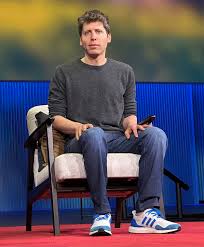
Introduction to Sam Altman
In the rapidly evolving world of technology, few figures have the same influence and recognition as Sam Altman. As the CEO of OpenAI and a prominent investor, Altman has played an instrumental role in advancing artificial intelligence (AI) and nurturing the startup ecosystem. His thoughts and actions have significant implications for the future, making his work exceptionally relevant in today’s tech landscape.
A Brief Biography
Sam Altman was born on April 22, 1985, in Chicago, Illinois. He studied computer science at Stanford University but left to co-found the location-based social networking company Loopt in 2005, which was eventually acquired. Shortly thereafter, he became president of the renowned startup accelerator Y Combinator, where he helped launch and mentor many successful companies, including Airbnb and Dropbox.
Leadership at OpenAI
In 2019, Altman became CEO of OpenAI, an organization primarily focused on AI research and deployment. Under his leadership, OpenAI has made significant strides, notably with the development of models like GPT-3 and ChatGPT, which have revolutionized the way we interact with technology. These models are capable of generating human-like text and have a myriad of applications across industries, from education to healthcare.
Recent Developments and Announcements
In recent months, Altman has been vocal about the need for regulations in AI development to ensure safety and ethical considerations are prioritized. His advocacy for responsible AI has sparked discussions among policymakers and company leaders alike. In a recent interview, he emphasized, “AI should benefit humanity, and our focus must be on ensuring it is used ethically and responsibly.”
Moreover, OpenAI has launched partnerships with major corporations like Microsoft, providing them with tools to integrate AI into their operations, showcasing the commercial potential and significance of AI innovations.
Conclusion
Sam Altman’s journey illustrates the potential of technology to transform lives and industries. His leadership at OpenAI not only highlights the advancements in AI but also shines a light on the ethical responsibilities that come with it. Looking ahead, as AI becomes increasingly integrated into our society, Altman’s contributions will likely continue to shape our understanding and implementation of this powerful technology. For readers, the significance of following Altman’s developments is clear: the evolution of technology will undoubtedly impact various aspects of life, and staying informed will be essential for navigating this new landscape.



